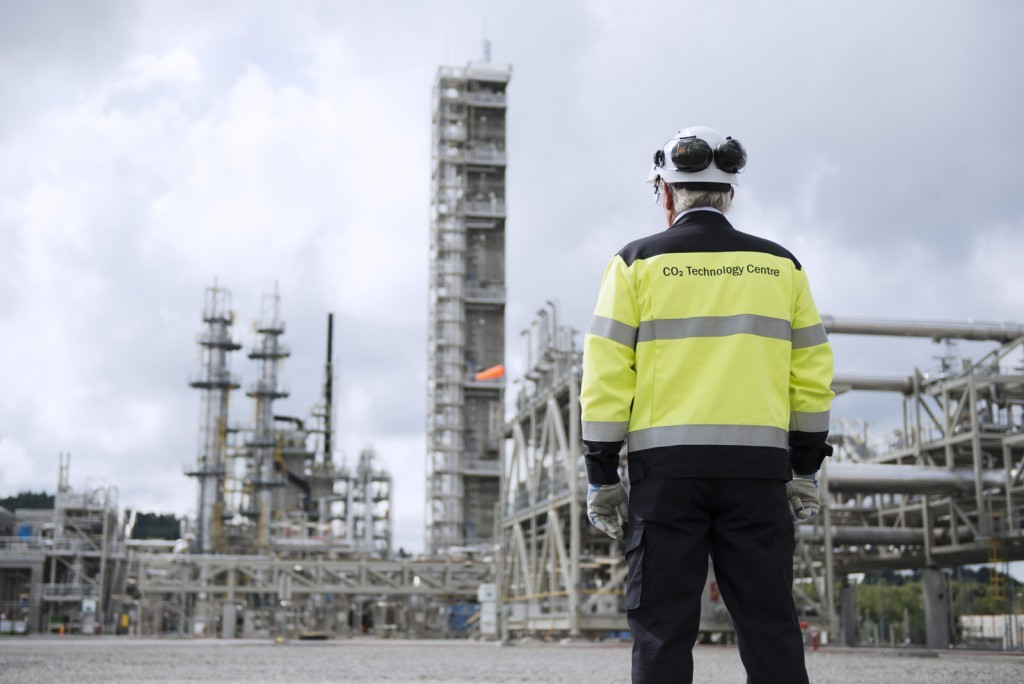 © Equinor
© Equinor The UK’s Government’s axing of support for major carbon capture and storage projects was been seen as a setback for the CCS sector, but it has also served to highlight the disparity between Britain and Norway, where the technology is being moving ahead.
Ironically, research studies undertaken by oil and gas services specialists AGR in the UK sector of the North Sea is helping its engineers act as technical advisors to Norwegian state-owned Gassnova, as the Scandinavian country invests billions in its CCS development.
Norway’s Ministry of Petroleum and Energy has outlined a strategy to develop technology for capturing, transporting and storing CO2 to support the country’s environmental targets.
Norway is recognised as a world-leader in CCS research and development.
In the UK last November, the Government axed its £1 billion competition to develop CCS technology.
The competition, which had two bidders – the White Rose scheme in Yorkshire and the Peterhead scheme in Scotland became dead in the water.
AGR’s project team has extensive experience of identifying, assessing and testing the right geological conditions needed to store billions of tonnes of CO2 in the North Sea.
Oil and gas expertise and associated technical knowledge is key to successful CCS implementation.
The company was the reservoir and wells advisor to the Department of Energy and Climate Change in the competitive tendering process for CCS in the UK.
Since 2010 it has been involved in the Humber Project for CCS in UK Southern North Sea for National Grid Carbon.
“Several of our subsurface team in Aberdeen were engaged by National Grid to review the pre-feasibility and subsequent feasibility study for this project,” explained AGR lead geologist Tim Wynn.
AGR provided petrophysical, geophysical, geomechanical and reservoir engineering support and modelling in the conceptual design phase of a development programme to dispose between 2.5 million tonnes per year (Mt/yr) and 40Mt/yr of CO2 into the Bunter sandstone formation located in the UK sector of the Southern North Sea (SNS).
In 2009-2010 AGR provided an assessment of the risks associated with CO2 leakage from injection wells, covering issues of monitoring, detection and subsequent mitigation steps on Shell’s Goldeneye field.
AGR was initially awarded a £5.4m contract to provide technical consultancy to Gassnova, the Norwegian state enterprise for carbon capture and storage (CCS), back in 2012. The four-year contract was to advise on strategy for the development of potential CCS projects in Norway.
As the strategy project comes to an end and Norway progresses with CCS development to meet environmental targets and solidify effective climate measures, AGR is continuing in an advisory role to support Gassnova as they select a technical concept to be developed with the objective of having a functioning full-scale CCS demonstration facility in place by 2020.
Gassnova and its partners are initiating feasibility studies and taking the next step to achieve full-scale CCS projects in Norway.
Gassnova is expected to contribute to finding solutions to ensure that technology for capture and storage of CO2 can be implemented and become an effective climate measure in Norway.
AGR will provide technical support across geoscience, reservoir and drilling disciplines, in addition to facilities and cost engineering. The team will be involved in the early stages of the project evaluating solutions developed for achieving CCS solutions which will later be developed into the Front End Engineering Design (FEED) phase.
